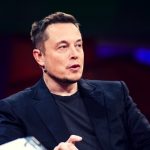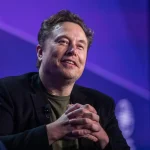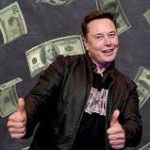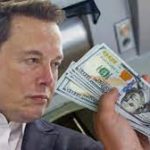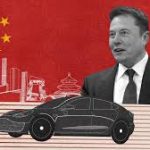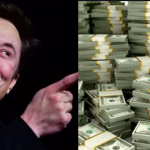Elon Musk: ‘Tesla car prices will drop with mass production’
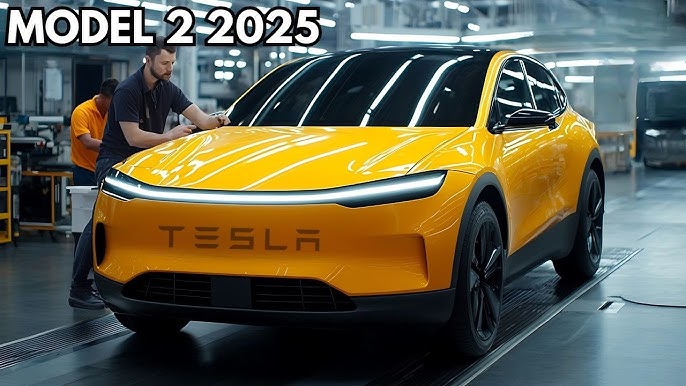
Elon Musk: ‘Tesla Car Prices Will Drop with Mass Production’
Introduction: Elon Musk, the billionaire CEO of Tesla, has recently made a bold statement that has caught the attention of automotive enthusiasts and investors alike: Tesla car prices will drop significantly with mass production. Musk’s vision of making electric vehicles (EVs) more affordable for the masses has long been a central goal of Tesla. His comments about lowering the cost of Tesla cars signal a new chapter in the electric vehicle industry, one where affordability and mass adoption are at the forefront. Musk has been pushing the boundaries of innovation and sustainability, and this latest move could have profound implications not only for Tesla but for the entire automotive industry. This article delves into Musk’s remarks, the potential impact on Tesla’s market, and how mass production could reshape the future of electric vehicles.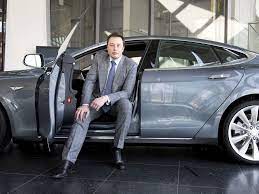
Musk’s Vision for Mass Production and Affordability: Elon Musk has always been outspoken about his desire to make electric vehicles accessible to a wider audience. The goal is clear: mass production and reduced costs. Tesla has already made significant strides in producing high-performance electric cars, with models like the Model 3 and Model Y gaining popularity for their affordability compared to traditional luxury EVs. However, as demand for electric vehicles continues to grow, Musk’s latest comments suggest that Tesla is gearing up to take things a step further.
Musk highlighted that mass production of Tesla vehicles would lead to significant economies of scale, enabling the company to reduce the prices of its cars over time. The key to this price drop lies in the automation of production and the expansion of manufacturing capabilities. As Tesla increases the volume of vehicles it produces, the cost per unit decreases, which allows the company to pass on those savings to customers. Musk also hinted at new battery technology and more efficient manufacturing processes that would contribute to cost reductions. Tesla’s ability to drive down production costs while maintaining the quality and performance of its vehicles will be essential to fulfilling Musk’s promise of more affordable EVs.
The Role of Gigafactories in Price Reduction: One of the primary drivers behind Tesla’s plan to lower car prices is the expansion of its Gigafactories. Gigafactories are large-scale manufacturing facilities designed to produce electric vehicles and batteries on a massive scale. Tesla currently operates several Gigafactories around the world, with plans for more in the pipeline. These factories are crucial for scaling up production and achieving the economies of scale necessary for price reductions.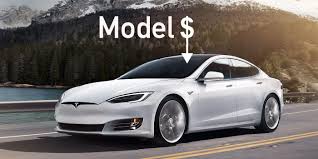
Musk has emphasized the importance of vertical integration in Tesla’s operations. By controlling much of the manufacturing process, from battery production to vehicle assembly, Tesla can streamline its operations and reduce reliance on third-party suppliers. This level of control over the supply chain gives Tesla the flexibility to make improvements in efficiency and reduce costs, which ultimately benefits consumers. As more Gigafactories are built, Tesla will be able to ramp up production, which in turn will lower prices across the board.
Moreover, Tesla’s move toward localizing production in key markets, such as Europe and Asia, will help reduce shipping costs and further lower the price of Tesla vehicles in those regions. With the expansion of its Gigafactories and local production, Tesla is positioning itself to not only lower prices but also improve its global supply chain, ensuring that more customers can access Tesla’s innovative electric vehicles.
Impact on the Automotive Industry and Competitors: The news of Tesla’s plans to reduce car prices through mass production is significant not only for the company itself but also for the broader automotive industry. Traditional automakers have been slowly transitioning to electric vehicles in response to growing consumer demand and stricter environmental regulations. However, many of these companies have struggled to produce affordable EVs that can compete with Tesla’s offerings. Musk’s statement sets a new benchmark for the industry, compelling competitors to rethink their strategies.
As Tesla’s prices continue to fall, traditional automakers will face increasing pressure to match or beat those prices with their own EVs. Many legacy automakers, such as General Motors, Ford, and Volkswagen, are investing heavily in electric vehicle development, but they still face significant challenges when it comes to affordability and mass production. With Tesla’s ability to lower prices while maintaining its status as a leading EV manufacturer, other companies may be forced to accelerate their efforts to produce affordable, high-quality electric vehicles.
The competition in the electric vehicle market will intensify, and Tesla’s ability to lead the charge in terms of price and production could reshape the industry. Musk’s vision of mass adoption of electric vehicles at affordable prices could spark a revolution, making EVs the dominant form of transportation for the masses.
The Road Ahead for Tesla and Electric Vehicles: Musk’s prediction that Tesla car prices will drop with mass production is undoubtedly an exciting prospect for consumers and investors alike. While challenges remain—such as global supply chain issues and the need for continued technological advancements—the trajectory is clear: Tesla is positioning itself to dominate the EV market by making electric cars more accessible than ever before.
As Tesla continues to innovate and refine its manufacturing processes, the company’s ability to deliver affordable, high-quality electric vehicles will only improve. The future of the automotive industry is electric, and with Musk’s focus on reducing costs, expanding production capabilities, and driving innovation, Tesla is poised to lead the way in making electric vehicles a mainstream choice for consumers around the world.
In conclusion, Elon Musk’s statement about lowering Tesla car prices with mass production represents a bold step toward making electric vehicles more accessible to a global audience. With the expansion of Gigafactories, advancements in battery technology, and streamlined production processes, Tesla is setting the stage for a future where electric vehicles are not just a luxury but a standard mode of transportation. The automotive industry is on the brink of a transformative shift, and Tesla is at the forefront of this exciting change.


